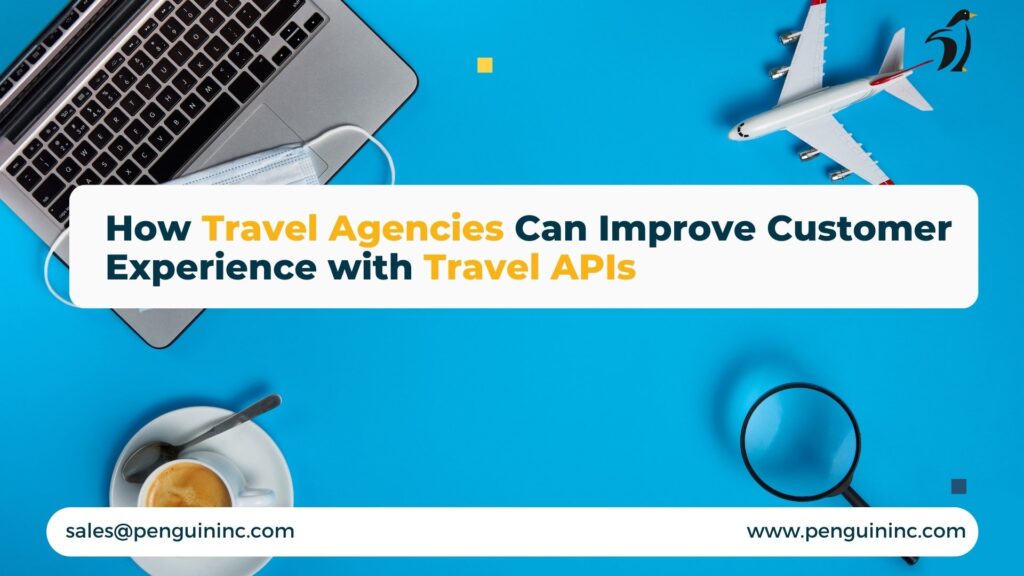Comprehensive Guide to Travel APIs: Enhancing Your Travel Business
In today’s fast-paced travel industry, staying ahead means embracing the latest technologies. One game-changing tool…
In today’s fast-paced, digital-first world, delivering exceptional customer service is essential for businesses across all industries, especially in the highly competitive travel sector. With evolving traveler expectations, travel agencies must embrace innovative solutions to streamline operations, offer personalized experiences, and, ultimately, delight customers. Leveraging Travel XML APIs is one of the most powerful tools in achieving these goals.

Customer service is critical in the travel industry, where a positive experience can lead to repeat business, brand loyalty, and glowing reviews, while a negative one can harm a company’s reputation. Here’s why customer service is more important than ever in the travel sector:
Technology has transformed customer service across various industries, and the travel sector is no different. By leveraging Travel XML APIs, companies can offer seamless, real-time experiences, from flight booking to hotel accommodations, ensuring their customers are satisfied at every touchpoint. Here’s how:
Leveraging Travel XML APIs is a game-changer for the travel industry, offering access to real-time data from airlines, hotels, and car rental companies. These APIs enhance service delivery by providing faster responses, better availability, and personalized recommendations.
An XML API (Application Programming Interface) allows travel businesses to connect with global suppliers and retrieve data such as flight schedules and hotel availability. Here’s how the process unfolds:
By integrating Travel APIs, agencies can automate their workflows, reduce manual errors, and provide faster, more efficient service.
Without APIs, travel agents would face cumbersome and error-prone manual processes. APIs streamline connections between agents and global suppliers, creating seamless experiences for both agents and customers.
By leveraging Travel XML APIs, agencies can offer enhanced services that directly improve the customer experience. Key features include:
Here are specific ways Leveraging Travel XML APIs can improve customer service:
Travel XML APIs allow customers to make instant bookings based on live availability and pricing, reducing waiting time and enhancing the overall experience.
By analyzing customer data, agencies can offer highly tailored recommendations. This improves both customer satisfaction and the likelihood of upselling.
Automation and real-time validation ensure customers receive accurate bookings, minimizing mistakes and cancellations.
Automating customer service workflows allows for faster responses, speeding up processes like ticket issuance and status updates.
As the travel industry continues to evolve, Leveraging Travel XML APIs will become even more critical. Here’s what to expect:
Leveraging Travel XML APIs is essential for any travel agency that wants to remain competitive in the digital age. By embracing these powerful tools, travel businesses can automate processes, access real-time data, and provide highly personalized customer service. As technology continues to advance, Travel XML APIs will be a key driver in creating exceptional travel experiences and fostering long-term customer loyalty.
By integrating these APIs into their systems, travel agencies can stay ahead in a rapidly evolving industry and continue to offer seamless, personalized service to travelers around the world.
In today’s fast-paced travel industry, staying ahead means embracing the latest technologies. One game-changing tool…
In today’s digital era, providing real-time Airline information with Flight APIs on your Travel Agency…
Travel Booking APIs are essential in the modern travel industry, enabling seamless experiences. They connect…
For Niche Travel markets Travel XML API integration has revolutionized the way travel companies expand…
In today’s interconnected world, businesses depend heavily on the seamless exchange of data to thrive….
Drive Growth in Your Travel Business with PenAir’s Hotel Booking XML API Integration Access Real-Time…
Unlock Seamless ConnectionsConnect to Global Travel Networks with API Integration! Enable Smooth, Instant Customer-Supplier Connections…
The travel industry is constantly evolving. One of the key drivers of this change is…
In today’s fast-paced business world, managing corporate travel efficiently is crucial. Companies need to optimize…